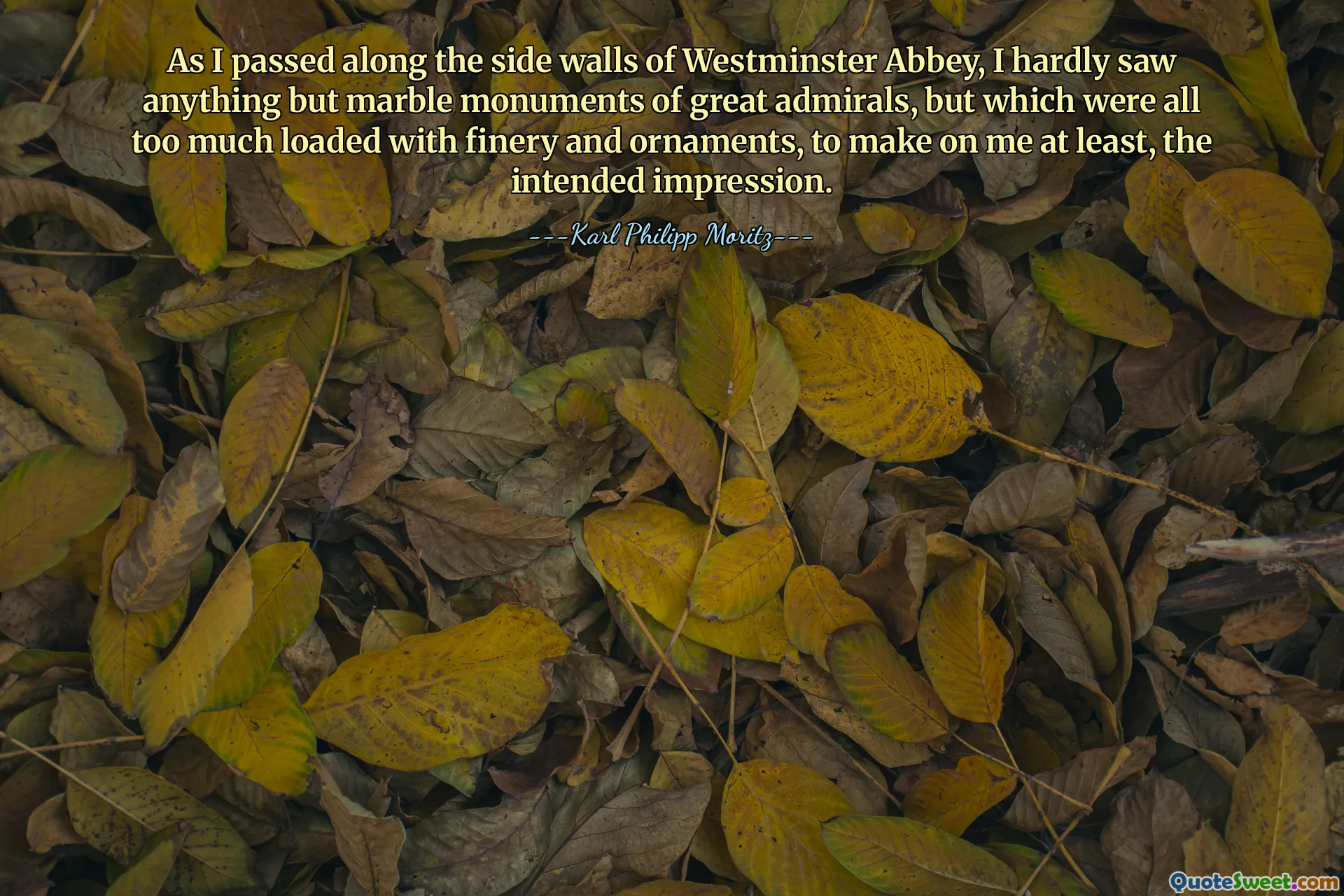
As I passed along the side walls of Westminster Abbey, I hardly saw anything but marble monuments of great admirals, but which were all too much loaded with finery and ornaments, to make on me at least, the intended impression.
This quote offers a contemplative look at our reactions to historical monuments and the way they are curated to evoke admiration or reverence. The speaker's observation about the numerous monuments dedicated to great admirals highlights a common tendency to glorify military achievements and heroism through elaborate memorials. However, the speaker notes that these monuments, despite their grandeur, are often overwhelmed with ornamental details and decorative finery. Instead of inspiring awe, this abundance of adornments might distract the observer from the qualities that the monuments are supposed to celebrate. It raises an interesting point about the effectiveness of memorials and the importance of simplicity when aiming to evoke genuine respect or reflection. The writer's challenge to find meaningful impact amid excessive ornamentation echoes a broader critique of superficial display versus authentic reverence. On a personal level, it prompts reflection on how we decorate our own environments, whether they serve to elevate or to distract from the core values or stories we wish to preserve. The tension between ornamentation and substance is timeless; it reminds us that sometimes, simplicity can communicate more powerfully than elaborate embellishments. This observation encourages us to consider what truly constitutes respect and admiration—are these feelings fostered more effectively by opulent displays or by sincere, unadorned acknowledgment of the accomplishments and virtues cherished in history?
---Karl Philipp Moritz---











